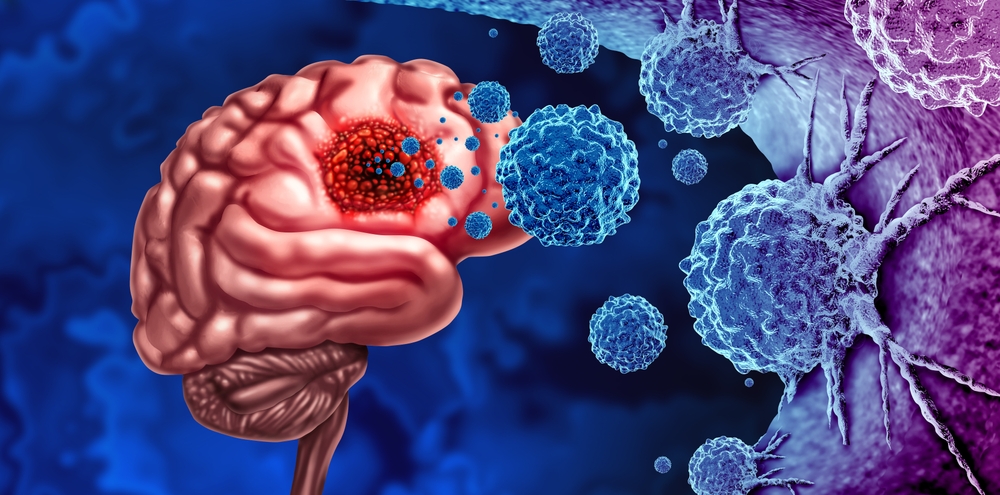Recently, CAR-T therapy has achieved continuous breakthrough results. First, scientists from the United States and Italy found a better target for CAR-T against a fatal brain tumor. Then, a research team from Japan developed an upgraded CAR-T therapy that can completely eliminate mice solid tumors.
1. A better target for CAR-T against a fatal brain tumor
Glioblastoma is one of the most deadly primary brain tumors, and traditional methods of treatment (including surgery, radiotherapy, and chemotherapy) usually bring survival benefits of less than a year and a half. Therefore, new treatments are urgently needed for such diseases.
In this study published in Science Translational Medicine on February 28th, scientists successfully designed a CAR-T therapy targeting a new molecule CSPG4. The study confirms that CSPG4 is highly expressed in 67% of brain cancer samples, and it is particularly important to emphasize that it is also expressed in cancer stem cells, which are very important for targeting such cells because they may cause tumor recurrence. In addition, targeting CSPG4 is also expected to overcome the heterogeneity of tumors faced by other targets such as EGFR III, IL-13Ra2, and HER2.
Professor Gianpietro Dotti, the author of the paper, said: “From the clinical studies of other teams, we knew that CAR-T therapy can play a role in glioblastoma, but the problem is that the target antigen used in these clinical trials is not optimal.”
In brief, CAR-T therapy is used to separate T cells from patients, and to modify T cells in vitro. After installing a chimeric antigen receptor (CAR), the “navigation” that can specifically recognize cancer cells, these modified CAR-T cells are then amplified and returned to the patient’s body to exert specific anti-cancer effects.
In this study, CAR-T cells targeting CSPG4 control tumor cell growth in a variety of disease models. Under cell culture conditions, this type of CAR-T therapy effectively eliminates the glioblastoma cells that express CSPG4. In a glioblastoma mouse model, CAR-T therapies targeting CSPG4 also control tumor growth to extend the survival of mice.
In addition, scientists have also discovered an important mechanism that increases the efficacy of CAR-T therapy by upregulating CSPG4 expression on tumor cells. Mice studies have shown that high levels of TNF-α are associated with increased expression of CSPG4. Therefore, the researchers believe that the use of TNF-α pathway is expected to make CAR-T targeting CSPG4 more effective.
Professor Dotti said: “Although this new therapy does not cure all tumors, we believe that it will not only be a promising monotherapy, but also be used in combination therapy with other therapies. Our ultimate goal is to put CAR -T therapy extends to solid tumors, and glioblastoma is one of the tumors we plan to treat in the near future.”
It is reported that relevant clinical trials will be targeted at those patients who have relapsed and need additional surgical treatment. To further ensure patient safety, researchers plan to add a “safety switch” to CAR-T cells to prevent toxic effects.
Professor Dotti said that with the currently available treatments, patients with glioblastoma have a very low cure rate and the use of the immune system is a potential new approach to treat these types of tumors.
2. An upgraded CAR-T therapy that can completely eliminate mice solid tumors
In fact, since the CAR-T therapy was formally approved by the US FDA for cancer treatment in 2017, the popularity of this research area has risen again. Many research groups actively work to expand the application scope of CAR-T therapy and to improve its effectiveness.
In addition to the above results, scientists from Japan also obtained a breakthrough, which was published in the top journal Nature Biotechnology on March 5th, entitled IL-7 and CCL19 expression in CAR-T cells improves immune cell infiltration and CAR-T cell survival in the tumor. The study has developed a new CAR-T technology called 7 × 19 CAR-T, allowing CAR-T cells to simultaneously express interleukin (IL)-7 and CCL19, which are essential for the maintenance of T cell regions in lymphoid organs.
In mice, 7 × 19 CAR-T cells exhibited superior anti-tumor activity than conventional CAR-T cells. It can completely eliminate pre-established solid tumors and extend the survival of mice.
Histopathological analysis showed that after treatment with 7 × 19 CAR-T cells, dendritic cells infiltrated and T cells that entered the tumor tissue increased. In addition, conventional T cells and 7 × 19 CAR-T cells in vivo in mice treated with 7 × 19 CAR-T cells had a memory response to the tumor, which can effectively prevent cancer recurrence.
Scientists believe that 7 × 19 CAR-T technology will help this type of therapy expand the scope of indications and become an epoch-making treatment for cancer.

